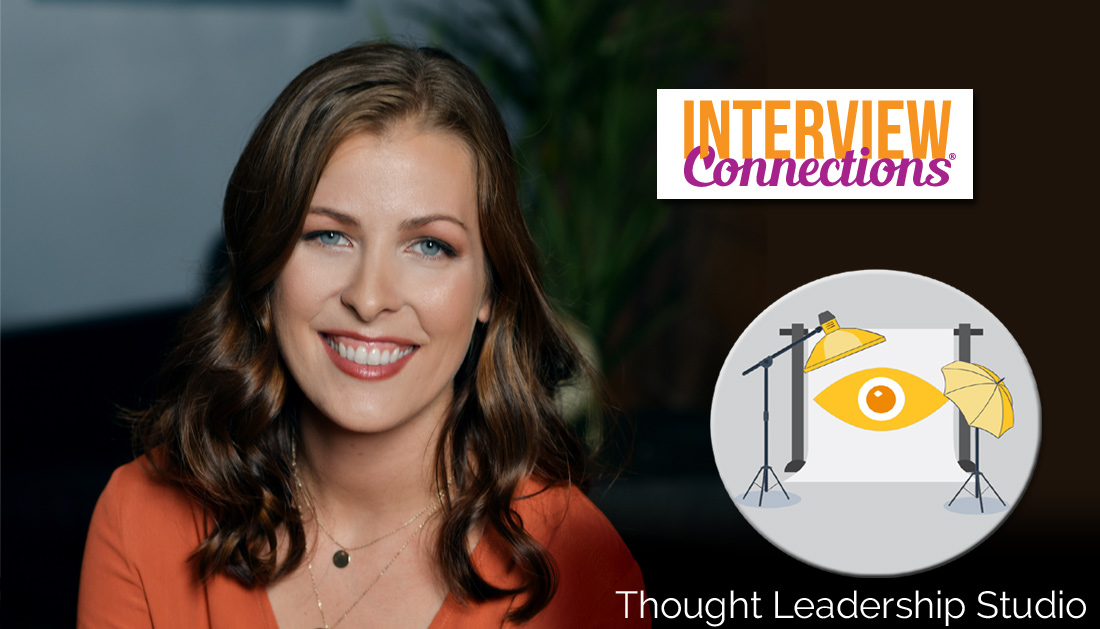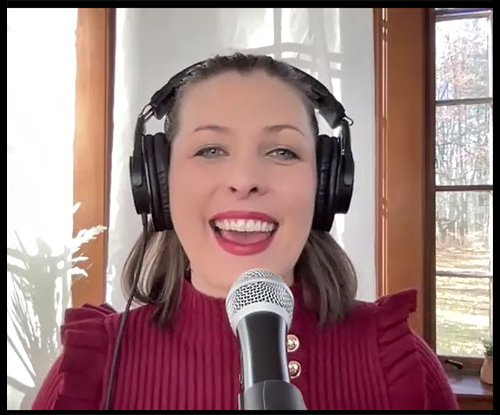Thought Leadership Studio Podcast Episodes:
Meta-Podcasting with Jessica Rhodes
Episode 87 - Amplify Your Influence: Leveraging Podcast Guesting to Build Authentic Connections and Elevate Thought Leadership

#branding, #communication, #contentmarketing, #entrepreneurship, #influence, #interviews, #marketing, #networking, #personalbranding, #podcasting, #podcasting, #storytelling, #strategicthoughtleadership, #thoughtleadership, #thoughtleadershipmarketing, #thoughtleadershipmodels
Or Click here to listen or subscribe on appWhat this episode will do for you
:- Explore the Evolution of Podcasting: Learn how podcasting has transformed from audience-building to targeted visibility and narrow-audience content creation.
- Leverage Podcast Guesting for Thought Leadership: Understand how being a podcast guest can grow your network, build authority, and attract your ideal clients.
- Build Meaningful Host-Guest Relationships: Discover strategies for fostering authentic connections with podcast hosts that create long-term value.
- Repurpose Podcast Content Effectively: Gain tips on maximizing the impact of your podcast appearances through strategic content reuse.
- Set the Right Goals for Podcast Guesting: Learn why focusing on brand awareness and providing value to audiences is more impactful than chasing immediate sales.
- Integrate Podcasting with Your Marketing Plan: Discover how podcast guesting and hosting complement each other to amplify your influence and reach.
Jessica Rhodes
In this chapter of the ongoing evolution of Thought Leadership Studio, I’m thrilled to welcome Jessica Rhodes, founder of Interview Connections, the world’s first podcast booking agency. Since 2013, Jessica has helped clients book over 30,000 podcast interviews, generating millions in sales and fostering thought leadership.
The relevance of podcast guesting to Strategic Thought Leadership is probably already apparent, given the context of this podcast. The podcast format is perfect for casting a positive spell over other peoples' audiences who you lead to distinctive value through your thought leadership positioning.
In this episode, we explore the evolution of podcasting, from building massive audiences to targeting niche markets, and how podcast guesting serves as a strategic tool for networking, brand awareness, and authentic connection. Jessica shares actionable tips on crafting effective guest strategies, building host relationships, and repurposing content.
Tune in to learn how podcast guesting can amplify your influence and expand your reach!
Some of Jessica's coordinates:
Curated Transcript of Interview with Jessica Rhodes
The following partial transcript is lightly edited for clarity - the full interview is on audio. Click here to listen.
Chris McNeil: I'm your host of Thought Leadership Studio, Chris McNeil, and this is a very exciting episode as I am sitting across Zoom with Jessica Rhodes, who is the founder of Interview Connections, the world's first and leading podcast booking agency that she started in 2013.
Since its founding, Interview Connections has booked over 30,000 podcast interviews for over 800 clients, and Jessica's passionate about helping online entrepreneurs leverage the power of podcasts guesting to grow their network, create thought leadership content, which we're all about here and attract dream clients.
The podcast interviews Jessica and her team have booked, have helped their clients generate millions of dollars in sales, sell thousands of books, and transform countless lives. Interview Connections was awarded the 2022 Bronze Stevie Award for Marketing Agency of the Year and podcast, booking Agency of the Year by Corporate Vision Magazine.
And on a personal note, Jessica's married with two kids and together the Enjoy Life and Road Island fits your name, doesn't it, with their backyard chickens and three rescue cats. I love it. Great to have here, Jessica.
 Jessica Rhodes: Thanks for having me. I'm excited to chat about thought leadership.
Jessica Rhodes: Thanks for having me. I'm excited to chat about thought leadership.
Chris McNeil: And this has been a path you've been on for a while, making connections, helping people piggyback on other people's audiences. It used to be all about other people's money now it's about other people's audiences in some ways, which leads to the question:
Was there a pivotal moment or was there a flash of awareness or some event that set you on this path that you could share with our listeners to give them some context about where you're coming from?
From Motherhood to Marketplace: How Jessica Rhodes Pioneered Podcast Booking
Jessica Rhodes: Yeah, the one pivotal moment for me was becoming a mom. I became an entrepreneur out of a desire to be home at that time with my newborn, who's now 11 going on 12 years old. So I was working at a nonprofit before I started my business leading a door to door field canvas, which is where I learned a lot of my sales skills going door to door.
 And when I was pregnant, there was this very clear, just hit like, I'm going to be a stay-at-home mom, not just stay at home. I needed to still make an income. And so I talked to my parents. My dad is an entrepreneur and so when I talked to him, he says, this is great. You should be a virtual assistant. VAs, they are business owners, they have clients. This would be perfect for you. I'll even be your first client.
And when I was pregnant, there was this very clear, just hit like, I'm going to be a stay-at-home mom, not just stay at home. I needed to still make an income. And so I talked to my parents. My dad is an entrepreneur and so when I talked to him, he says, this is great. You should be a virtual assistant. VAs, they are business owners, they have clients. This would be perfect for you. I'll even be your first client.
And so my dad became my first client and one of the things that he asked me to do for him was to book him on podcasts and to help get guests on his show. And that's really what opened me up to this world of online entrepreneurship, personal branding, thought leadership, and yeah, I'll pause there, but kind of like the rest is history. So they say,
Chris McNeil: Well, that's awesome. So what is a difference that makes a difference for you, that made this a path with heart, so to speak?
Because there's lots of things that you could do to work from home, but you chose this path of making these connections through podcast audience. What's special about that?
Jessica Rhodes: So my dad and I had a heart to heart talk. It was, I think in May of 2013 because I was booking him on podcasts, but I was also doing sales for his newsletter marketing company. I was helping him with social media, I was doing other VA tasks, and we had a heart to heart kind of a coaching conversation where he asked me of all the things that you're doing, what do you enjoy the most? What do your clients enjoy the most? Where are they getting the most value? What's in highest demand of all the things that you're doing?
And all of those questions pointed to booking podcast interviews. And he says, if it's the same thing, that's great. If you have different answers, that's fine, we'll figure it out. But I just loved it because I've been learning so much and I was learning so much about marketing and have continued to learn about marketing and business growth over the course of the last 11 years.
But the thing that I really loved about podcasting and podcast interviews is there's things to do to make it effective. But at the heart of it, the people that are building their business through podcast guesting and podcast hosting are people that just have a genuine connection. There's authenticity, no hiding behind certain tactics and tricks and headlines. It's like if somebody hears a full interview with you and they like you, they're going to want to work with you.
And if they don't, they won't. There's no trick about it. You can't. It's just authenticity. And I find it so refreshing. I love that For entrepreneurs who aren't marketers, they have a great business, they are experts at what they do, but they're like, I'm not good at marketing. They can get on a podcast and share authentically and do really well, and I love that.
How the Podcasting Landscape Became a Networking Powerhouse
Chris McNeil: Which ironically is the best marketing. And people have this mental model of what marketing is sometimes based on the old car salesman, step on the toes kind of thing. And it really, it's a continuum of the service that we give to our audience. And some of them become customers, some of them pay with attention, and that's a valuable commodity these days.
Jessica Rhodes: I find that people get kind of tripped up when they think, oh, I'm not good at marketing. They're like, I don't know how to entertain on a video, or I don't know how to write really good copy, or I don't know how they get tripped up with all the tactics of the various platforms. But at the end of the day when we strip all the platforms away, it's you're a human. Just have a conversation.
Chris McNeil: Sure. Well, trying to do my best to act as the listener advocate and think how can we get the most out of this conversation with Jessica here? How do you see the landscape of podcasting these days? Because I know there's of course, the Joe Rogans of the world who have millions and millions and are more dominant in shaping public opinion than mainstream medium in some ways these days.
But then you have how many thousands and millions of podcasters with micro niches that are very, very specific about a certain hobby that may have a small following, but it's their passion and 15 people that listen, they're really engaged with. How do you see the landscape and how do you use that information to help match guests with podcasts?
Jessica Rhodes: Yeah, to answer your question, I want to first kind of bring context to what the podcasting landscape looked like 10 years ago when I was first starting out because I've seen it kind of evolve and change now in 20 13, 20 14 when I was just starting my business, there were a couple hundred thousand podcasts total online. Now there's over 3 million. So the number of podcasts has grown so much.
 And so when people, business owners specifically were getting into podcasting back then there was this goal for many of them to grow a really big audience because there weren't that many shows. There were the same number. Well, more people are listening now, but the same number of humans on the planet, but not as many shows. So I did see podcasters really gunning for huge audiences and how can I get that fame?
And so when people, business owners specifically were getting into podcasting back then there was this goal for many of them to grow a really big audience because there weren't that many shows. There were the same number. Well, more people are listening now, but the same number of humans on the planet, but not as many shows. So I did see podcasters really gunning for huge audiences and how can I get that fame?
And now what I see is people are grounded in what this platform is good for and it's for targeted visibility and it's for very niche content. And when you get who your target audience is and you understand the niche value that you have to bring to them, you don't need to be famous, but you can be very effective and successful with the platform as a strategy.
I've also seen, because I've done well over 30 podcast interviews just this year alone, and one thing I've noticed is that every host that I've connected with who's interviewed me, they really value their connection with the guest of the show. They really value the conversation. I've done JV partnerships with different hosts. I've had hosts come into my community.
There's just been so much amazing networking and relationship building that comes just from that host guest relationship. And then everyone that listens in on the conversation, that's like icing on the cake. But primarily what I see podcasting is as now for business owners is it's a networking strategy.
Leveraging Podcasting to Amplify Your Brand
Chris McNeil: Yes, absolutely. And it's certainly been that for my own experience with Thought Leadership Studio, and as I mentioned before we started recording, I started this podcast because I developed this innovative methodology of organizing influence and giving a real structure to how to bring an audience to see your point of view and designing that point of view to be really empowering, to cut through the noise online.
It's been really effective but didn't lend itself to an elevator pitch. So for me, it's been a platform to also explore different angles of how to bring that fully to life for the listener who may want to get better at online influence with guests like yourself who are very, very skilled in your case or very parallel a set of skills in bringing about this networking. Have you always been a natural networker or did you have to work on that?
Jessica Rhodes: I've always been pretty extroverted. I did theater my whole childhood. That was kind of the activity that I did throughout middle school and high school. And then I was telling you right before, or I don't know if it was on the interview or right before this, but I did canvassing before I started my business.
And so I've always been a talker ever since I was young. I have a twin sister and we've got two older brothers. So being in a family of six, there was competition for the spotlight and that's been inside me forever.
Chris McNeil: Well, that's awesome. So you say knowing your audience is a piece of the puzzle. What would be a good big picture thousand foot view strategy for now? I'm thinking of the typical listener of this podcast from what I know, and I probably continue to be surprised by who listens to this and for what reasons.
But maybe somebody who's a solopreneur consultant or coach who's just written a book or is working on a book and are thinking, how can I get my ideas in front of a larger audience? And podcasting, the authenticity of it. We know it's not AI generated. You can hear the people talking and it cuts right through that noise in that sense. What would be a big picture strategy if you had five minutes to coach them along future pacing, how to use the podcast platform to promote themselves effectively?
 Jessica Rhodes: Yeah. Well, I mean just to kind of start my answer, I want to piggyback off what you said about it doesn't lend itself well to an elevator pitch. So that's first and foremost for anyone listening who resonates with that of what I do, how I coach people, the impact that I have, transformation that I help my clients have, I can't sum that up into 30 seconds. Then podcasting is a platform and a strategy that's going to help you reach more people and diversify your marketing because there are people that like to read, there are people that like to watch videos, and there are people that prefer to put on something audio only and be doing other things while they're taking in the content. A
Jessica Rhodes: Yeah. Well, I mean just to kind of start my answer, I want to piggyback off what you said about it doesn't lend itself well to an elevator pitch. So that's first and foremost for anyone listening who resonates with that of what I do, how I coach people, the impact that I have, transformation that I help my clients have, I can't sum that up into 30 seconds. Then podcasting is a platform and a strategy that's going to help you reach more people and diversify your marketing because there are people that like to read, there are people that like to watch videos, and there are people that prefer to put on something audio only and be doing other things while they're taking in the content. A
nd so to leverage this platform effectively as a guest, which is primarily what I talk about, it's first knowing what your goals are and knowing what do you want to get out of this. The most effective goal, in my opinion, is overall brand awareness. When you go into this strategy as a way to just get your brand out there to new audiences on a consistent basis without necessarily this expectation that it's going to lead to sales, because it doesn't always lead to sales right away. You're introducing your brand to new audiences every time they hear you, and people aren't always ready to make an investment in what you have the first time that they meet you.
So having a goal of overall brand awareness and bringing value to new audiences, so that way you create some stick factor with the people who hear you, who are your target audience, that's an excellent goal. And then really getting clear on who that target market is, who do you want to be hearing you on podcasts? Who's your ideal client? What types of shows are they listening to? Just to pull back the curtain, because whenever I'm on podcasts, it's very meta because we are talking about the thing that we are actively doing.
The Long Game of Podcast Guesting: Building Authority Over Time
Chris McNeil: Yes, I thought that.
Jessica Rhodes: My team looked at your show and was like, this is perfect. Because looking at the episodes you do, one of your most recent episodes is about how to use LinkedIn effectively, how to really improve your LinkedIn profile. That is something that my clients also are really interested in learning about.
 So I look at your show and I'm like, well, I know we have the same target market because my clients would love these topics that you're doing episodes on. So that's one way that you can look at podcasts and decide, would I be a good fit for this show? Would this show be a good fit for me? And when there is that win-win partnership and their audience in your topic, that's a great podcast to be a guest on. And this is a strategy that is long-term, a slow burn. It's not an overnight, you don't do a podcast, put it out there and have tons of leads reaching out.
So I look at your show and I'm like, well, I know we have the same target market because my clients would love these topics that you're doing episodes on. So that's one way that you can look at podcasts and decide, would I be a good fit for this show? Would this show be a good fit for me? And when there is that win-win partnership and their audience in your topic, that's a great podcast to be a guest on. And this is a strategy that is long-term, a slow burn. It's not an overnight, you don't do a podcast, put it out there and have tons of leads reaching out.
Sometimes that can happen, but for the most part, you're putting out episodes every single week. It takes time to grow an audience. It takes time to people to allow people to get to know you, to come to understand, do they want to work with you? What's their timeline? All of this stuff. It takes time. So a lot of entrepreneurs, they try podcasting or podcast guesting, and then they quit like, oh, it didn't work for me, but they gave up after three months or six months. But when you add this into your marketing plan and just stick with it year over year, you build a very strong reputation of being an authority and a leader in your industry.
Chris McNeil: Do you see it as symbiotic with promoting a book and writing a book?
Jessica Rhodes: Absolutely. I mean, having a book, you have this asset that makes you an authority, that communicates your authority, but then you have to promote it. I think that having a book and having your own podcast, it's owning media, it's owned media. You own the podcast, you own the book, but then you need to promote it. You need to get out there.
And that's where I think Podcast Guesting comes in, is you guest stump other people's podcasts to get people to come listen to your show or to get people to read your book.
Creating Win-Win Partnerships Between Podcast Hosts and Guests
Chris McNeil: So what makes a great mutually beneficial partnership between the podcast host and the podcast guest?
Jessica Rhodes: Yeah, I mean, first it's about the guest needs to have valuable content that the host audience wants to learn about. So what is the problem or the interest or the pain point, the need that host audience has this show thought leadership. Your listeners are wanting to grow their thought leadership and learn about different ways to promote their thought leadership.
 So for me, coming on and talking about how do you use podcast guesting to take your thought leadership to next level, that's win-win. Your audience is going to get value from this conversation, and if they get value from this, they're going to want to say, I wonder who Chris is going to bring on next week. I want to listen again.
So for me, coming on and talking about how do you use podcast guesting to take your thought leadership to next level, that's win-win. Your audience is going to get value from this conversation, and if they get value from this, they're going to want to say, I wonder who Chris is going to bring on next week. I want to listen again.
And so that's the value to the host is that the guest helps bring great content that makes the listeners want to see who you bring on next week. And then it's a win-win for the guest. Because if your listeners liked me and what I had to say, they'll probably come check me out and follow me on LinkedIn or go to my website.
Chris McNeil: You kind of have to have your media mix all set up, don't you, when you jump into these So people have places that are sticky ...
Jessica Rhodes: Exactly.
Chris McNeil: ... to jump from because it's hard to jump from a first contact to a sale in most cases.
Jessica Rhodes: For sure. And for most coaches and service providers, we're not offering something that's a impulse $20 purchase. We're offering an investment, a service, something that takes commitment.
So you don't want to make that offer right on a podcast, do you want to say, okay, here's a free offer whether there's a lead magnet or a free discovery call or follow me on LinkedIn. Give the listeners a place where they can get in touch with you or follow you for more, not necessarily going right to the point of sale.
***************************************
The transcript is lightly edited for clarity and is a partial transcript- the full interview is on audio. Click here to listen.
***************************************
Free Stuff and Offers Mentioned in Podcast
***************************************
***************************************